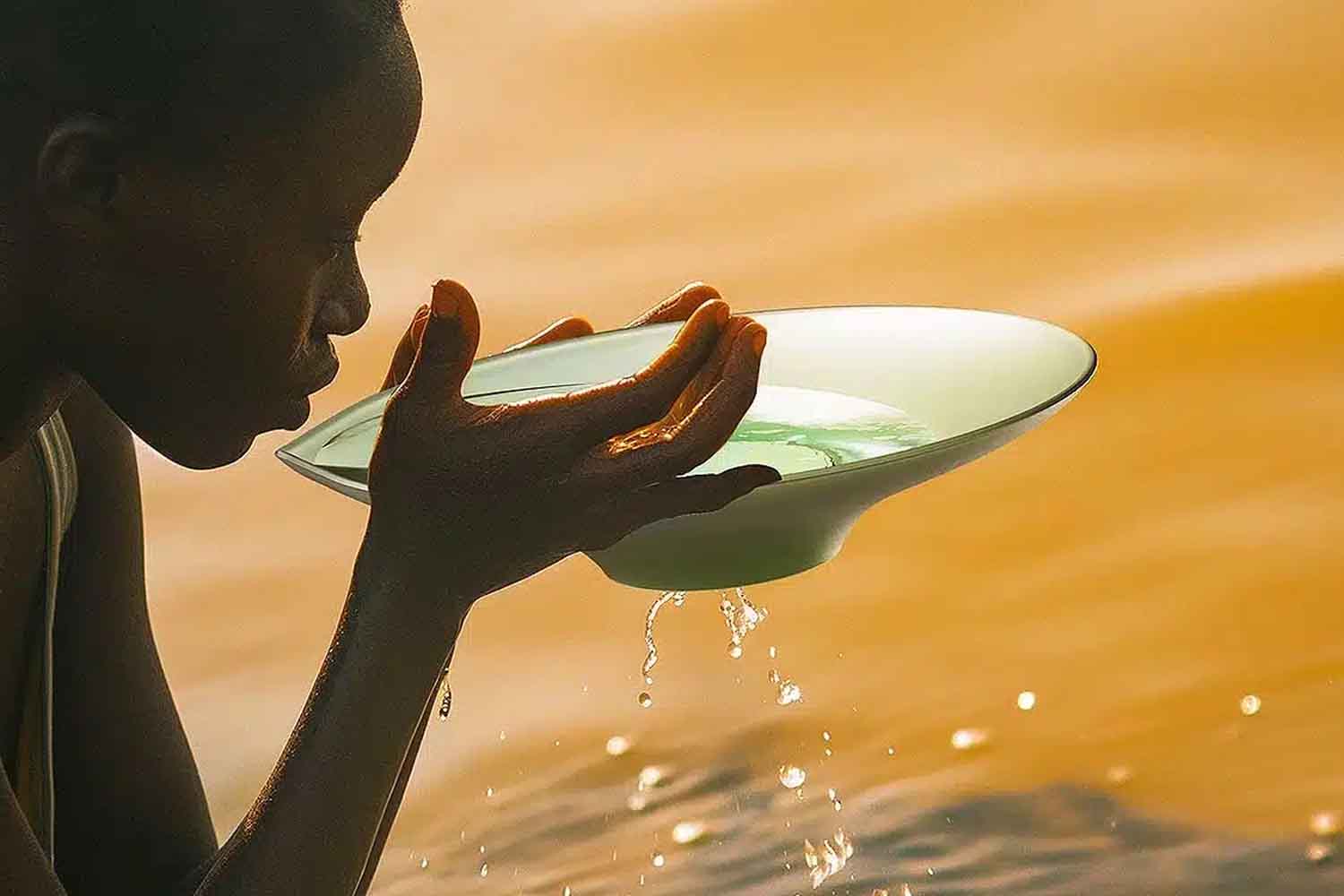Floatis is a floating, electricity-free water purifier inspired by lotus leaves — a simple, sustainable device that makes safe drinking water accessible anywhere.

©Floatis
More than two billion people around the world still lack access to safe drinking water. It’s a staggering statistic, not because it’s surprising, but because it hasn’t changed much. This silent, daily emergency persists in vast swathes of the globe, particularly in communities that are remote, impoverished, or overlooked. And while technologies for water purification exist, they’re often prohibitively expensive, overly complex, or simply not built with these communities in mind.
But now, three young South Korean designers — Dami Seo, Hyeonsu Yu, and Gagyeong Min — have introduced a solution so simple, it’s disarming. It’s called Floatis, and it might just be one of those rare inventions that shifts paradigms. Inspired by the self-cleaning properties of lotus leaves, Floatis is a small, floating water purifier that works without pipes, electricity, or technical installations.
How it works: no wires, no fuss
At first glance, Floatis looks like a toy. A green bowl, light as air, gently bobbing on the surface of a pond. But beneath its minimalist design lies an elegant piece of engineering, built with mobility and accessibility in mind. The idea is beautifully straightforward: place Floatis on a body of water — a river, a lake, even a puddle if you must — and it does the rest on its own.
Hidden just below the surface is a cylindrical base that draws in water, guiding it through a three-step filtration system. First, a pre-filter catches larger debris. Then comes the activated carbon filter, which neutralizes odors, tastes, and various chemical residues. Finally, a ceramic membrane removes bacteria and microorganisms, leaving behind water that’s not just clearer, but safe to drink.
Once purified, the water is stored in the floating reservoir. To access it, you simply press a button at the center of the “leaf,” and the clean water flows into the built-in bowl. You can even detach the top portion and carry it like a natural canteen — a feature that makes it particularly useful for hikers, campers, or disaster relief workers on the move.
Learning from the lotus
Floatis is a perfect example of biomimicry — the practice of emulating nature to solve human challenges. The lotus, after all, is a marvel of evolution: despite growing in murky water, its leaves remain remarkably clean, thanks to their micro-structured surface, which repels dirt and liquids. Floatis borrows this principle, transforming it into a low-impact, ecological technology that requires no electricity, creates no waste, and works anywhere.
That alone makes it game-changing for off-grid villages, urban slums, or regions affected by climate-related disasters. But it’s just as practical for weekend adventurers, long-distance travelers, or anyone facing uncertainty about their water source. In a world where climate volatility is the new normal, such a tool might become indispensable.
From idea to global impact
Most importantly, Floatis offers an alternative to traditional water treatment systems — those large, industrial setups that demand infrastructure, fossil fuels, and often create secondary pollution. Here, instead, is a device that you can hold in one hand, that can save lives simply by floating.
Its creators dream of making clean water universally accessible — not as a luxury or privilege, but as a basic human right. “When technology truly takes inspiration from the planet,” they say, “it becomes a tool for peace.” And that might be the most powerful part of the story: not just a new gadget, but a vision rooted in justice, health, and respect for nature.
Source: behance.net
